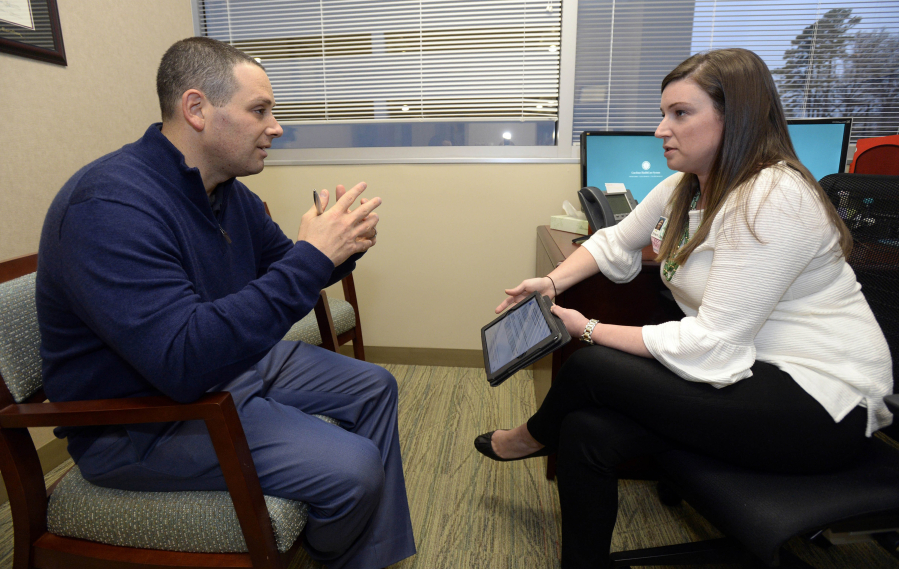CHARLOTTE, N.C. — Earlier this year, Dr. Jason Dranove had a mastectomy to prevent breast cancer.
Yes, you read that right.
It’s rare, but males can develop breast cancer and have surgery to remove breast tissue.
Dranove, a pediatric gastroenterologist at Levine Children’s Hospital, chose to have the operation after a medical discovery unfolded in his father’s family. It began when his uncle in New Jersey was diagnosed with breast cancer and, a year later, with pancreatic cancer.
That unusual combination of cancers led another uncle in Chicago to begin asking questions. And that led to the realization that the cancers could be related to a genetic mutation in the family.
“It’s very odd to see breast cancer in a male,” Dranove said, “but it’s pretty weird to see two cancers like that in the same person.”
After having a genetic test, the New Jersey uncle learned he was, indeed, positive for a mutation in the BRCA1 gene that is known to increase the risk of breast cancer and several other cancers in both women and men. Because he was positive, it meant his brothers — Dranove’s father and the Chicago uncle — each had a 50-50 chance of having inherited the mutation as well.
The brothers had to decide whether to be tested. Dranove encouraged his father to do it by explaining the potential effects on his children and grandchildren.
“You have a daughter, and now I have a daughter,” Dranove said. “If you get tested and you’re negative, none of us have to get tested. And we don’t have to worry about this. … If you don’t get tested, that means all of us have to get tested.”
His father’s test in 2013 turned out positive for the mutation. That meant Dranove and his brother and sister each had a 50 percent chance of having the mutation too.
Before he decided whether to be tested, Dranove met with genetic counselor Stacy Lenarcic, a colleague at Carolinas HealthCare System, in February 2015.
Through her, he learned that the increased risk of cancer due to a BRCA mutation is low for men, but for a woman, “it can be catastrophic,” he said. He was worried about his daughter, now 2.
For an average man, the chance of getting breast cancer is less than 1 percent; with a BRCA mutation, it goes up to 10 percent over a lifetime. For the average woman, the chance of getting breast cancer is 12 percent; but with a BRCA mutation, it goes up to 87 percent.
When Dranove and his siblings finally had the test, Dranove was the only one who turned up positive.
He went back with his wife to speak with Lenarcic, who explained the National Comprehensive Cancer Network guidelines. They advise men with BRCA mutations to be watchful about potential cancer by performing regular self-breast exams and having breast exams by a doctor regularly. Lenarcic also recommended that he visit a cancer surgeon to talk about that option.
After being examined by Dr. Richard White, a surgical oncologist with Carolinas HealthCare, Dranove decided to have a mammogram, a screening test that is usually associated with women 40 and over.
The mammogram showed Dranove had more breast tissue on one side than the other, but didn’t show anything suspicious. Still, partly because of that extra breast tissue, he decided to have a mastectomy.
“We knew that the chances are low that anything bad was ever going to happen to me,” he said. “But it just seemed very silly to not do it. … There’s no reason to take a chance when you have something that could potentially be close to 100 percent preventable.”



